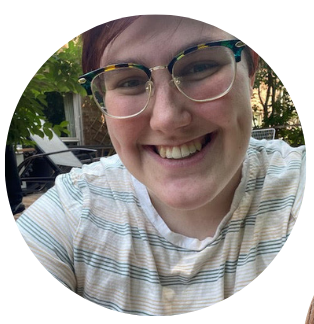Advisory Committees
February 2024 Update

Join Our Research Committee
Cassie + Friends relies on counsel from scientific and medical experts as well as patients and caregivers when making important decisions regarding research funding and programming, and any matters related to the health and treatment of people living with childhood rheumatic disease. Since 2007, we have directly funded $1.76M in research in addition to making significant contributions as a patient research partner and knowledge mobiliser. The role of the Research Advisory Committee is to advise C+F on all matters related to research so that we can be the most effective and efficient with our time and resources, and help the most people possible. As part of the committee, you will weigh in on priority research-related issues and key opportunities that will help C+F carry out our mission to transform the lives of children affected by Juvenile Arthritis and other childhood rheumatic diseases. You can review our Research Advisory Committee’s full Terms of Reference here.
–
****
Meet Our Committee Members
Medical Advisory Committee

Dr. Lori Tucker is a Clinical Professor in Pediatrics, Pediatric Rheumatology at the BC Children’s Hospital, University of British Columbia. Her research focuses on physical activity in children and youth with JIA, development of shared decision-making in pediatric rheumatology care, and autoinflammatory diseases in children. She is one of the founding members of the Canadian Alliance of Pediatric Rheumatology Investigators. In addition, she is a passionate advocate for kids with rheumatic diseases and their families, provincially and nationally and as a member of the Cassie & Friends Board.

Dr. Luca is a Paediatric Rheumatologist at the Children’s Hospital of Eastern Ontario (CHEO). Completing her medical degree in 2006, Dr. Luca went on to paediatric residency and fellowship in paediatric rheumatology at The Hospital for Sick Children in Toronto. She also holds an MSc in Health Services Research and Clinical Epidemiology, and is an active mentor and lecturer to students and residents.

Dr. Roberta Berard is an associate professor of Paediatrics at the University of Western Ontario and the chief of Paediatric Rheumatology at the Children’s Hospital, London Health Sciences Centre in London, Ontario, Canada. She is also a valued member of the Cassie + Friends Medical Advisory Committee where she helps to provide the most current and evidence-based information to youth and families. To her patients, Dr. Berard is known for her warmth and passion in providing kids and families affected by juvenile idiopathic arthritis, uveitis, and other rheumatic diseases with the best clinical care and treatment options possible.
 Dr. Heinrike Schmeling is an Associate Professor with the University of Calgary, as well as a Pediatric Rheumatologist, currently practicing at the Alberta Children’s Hospital in Calgary, Alberta. She obtained her PhD in 2002 at Humboldt University in Germany, and completed her Medical Specialist in pediatric and adolescent medicine in 2005. Since the beginning of her first academic position at the Alberta Children’s Hospital/University of Calgary in 2009, Dr. Schmeling’s clinical and research activities are focused on personalized medicine and outcome in childhood arthritis and Juvenile Dermatomyositis. She leads various projects in this area, and is involved in many national and international research collaborations. Dr. Schmeling is also the site principle investigator on multiple international clinical trials in childhood arthritis. She has published over 70 peer-reviewed papers and secured multiple funding opportunities for research. Dr. Schmeling is currently serving as chair of the Canadian Alliance of Pediatric Rheumatology Investigators (CAPRI) organization. The mission of CAPRI is the pursuit of new knowledge for the benefit of children and adolescents with rheumatic diseases by building infrastructures and facilitating collaborative multi-center research of childhood rheumatic diseases in Canada.
Dr. Heinrike Schmeling is an Associate Professor with the University of Calgary, as well as a Pediatric Rheumatologist, currently practicing at the Alberta Children’s Hospital in Calgary, Alberta. She obtained her PhD in 2002 at Humboldt University in Germany, and completed her Medical Specialist in pediatric and adolescent medicine in 2005. Since the beginning of her first academic position at the Alberta Children’s Hospital/University of Calgary in 2009, Dr. Schmeling’s clinical and research activities are focused on personalized medicine and outcome in childhood arthritis and Juvenile Dermatomyositis. She leads various projects in this area, and is involved in many national and international research collaborations. Dr. Schmeling is also the site principle investigator on multiple international clinical trials in childhood arthritis. She has published over 70 peer-reviewed papers and secured multiple funding opportunities for research. Dr. Schmeling is currently serving as chair of the Canadian Alliance of Pediatric Rheumatology Investigators (CAPRI) organization. The mission of CAPRI is the pursuit of new knowledge for the benefit of children and adolescents with rheumatic diseases by building infrastructures and facilitating collaborative multi-center research of childhood rheumatic diseases in Canada.
More information coming soon!
(CAN-Said) Autoinflammatory Patient/Parent Group
 Ian Stedman is an autoinflammatory patient and parent. Always sick as a child, Ian had a recurring mystery skin rash that no doctor could identify. He developed joint inflammation, headaches, fevers, bloodshot eyes and later, even partial hearing loss. When Ian’s first child was born, he noticed that she had a similar rash.
Ian Stedman is an autoinflammatory patient and parent. Always sick as a child, Ian had a recurring mystery skin rash that no doctor could identify. He developed joint inflammation, headaches, fevers, bloodshot eyes and later, even partial hearing loss. When Ian’s first child was born, he noticed that she had a similar rash.
Initially unconcerned, Ian began to worry when his daughter stopped walking late in her first year of life. They saw specialists, but Ian also began to investigate on his own. As a lawyer, Ian had developed extensive research skills, helping him find relevant information in the countless hours he spent searching the internet and medical journals for the reason behind his daughter’s symptoms.
Eventually, Ian consulted with doctors at SickKids and both he and his daughter were diagnosed with a form of CAPS (Cryopyrin-Associated Autoinflammatory Syndromes) called Muckle Wells Syndrome (MWS).
Ian has since become an advocate for the autoinflammatory community. He joined the Canadian Organization for Rare Disorders as a board member and began to make connections, including with Cassie + Friends when he joined a family day in Ontario. Ian shared his voice and experience, helping establish an autoinflammatory sub-event.
Ian’s involvement in the rare disease (RD) community has demonstrated that improvements could be made in Canada’s support of RD patients and families. Ian has recently co-founded the Canadian Autoinflammatory Network (www.autoinflammatory.ca), which will be partnering with Cassie + Friends to build a better future for autoinflammatory families, including through the work of the Canadian Systemic Autoinflammatory Patient Advisory Group (Can-SAID). This partnership is important to Ian as he recognizes the importance of an organization that is able to cater to the unique needs and challenges of pediatric autoinflammatory patients.
Not only is Ian our Can-SAID chair, but he is also a professor in York University’s School of Public Policy and Administration, the vice Chair of the Canadian Institute of Health Research’s Institute of Genetics, a legal member of the research ethics board at SickKids Hospital and, most importantly, the lucky father of three amazing little girls who wake him up every day and give him his purpose in life.
Since he was a toddler, Sara Ethier’s son was always sick. What appeared to be severe responses to the viruses making rounds in daycare settings soon morphed into something different. By the age of six, her son was experiencing recurring fever every four weeks, although he was healthy in between.
Over time, the fevers decreased but other symptoms arose- skin rashes, red eyes, headaches, fatigue, joint inflammation and a refusal to walk.
After years of seeing a multitude of doctors to rule out other illnesses, her son was referred to the department of rheumatology and eventually diagnosed with a form of TRAPS.
Currently, her son is on a treatment plan of Ilaris (Canakinumab), Colchicine (an anti-gout agent) and prednisone (if needed). Although this combination of medicine has significantly improved his quality of life, his disease flares and skin activity continue.
This uncertain condition has affected the entire family due to missed experiences, low attendance at school and numerous canceled plans. However, there has been recent improvement and Sara’s son is now participating in activities he could not before, such as jiu jitsu, alpine skiing, badminton, and most recently, hockey.
Sara is an educator in Communication and Liberal Arts studies and interested in how storytelling can create more understanding of the unique experience that illness and pain has on children and their families.
The initial diagnosis and treatment was for Familial Mediterranean Fever (FMF). However, Jamil’s condition continued to intensify over the next couple of years, and he was recommended to the National Institutes of Health (NIH) in the US. After further investigation, it seemed the behavior of the disease did not match FMF, but was an unspecified fever syndrome. This led to years of continued examinations, including skin, liver and bone marrow biopsy.
The rheumatology team advocated for Jamil to be put on a medication called Anakinra, which required painful daily injections. At first, it seemed to help reduce his fever and symptoms, but unfortunately, he developed an allergy to it and his condition worsened again.
The only other option was a medication called Canakinumab that was not approved, especially for a child. However, Dr. Lori Tucker and her team advocated for Jamil to be considered for treatment under compassionate care despite resistance from the government.
Eventually, Jamil was given a Serum amyloid A test which showed his numbers to be 150,000 to 200,000 more than normal, and potentially life threatening. The company agreed to give the monthly treatment to Jamil and he responded positively. His condition improved and he is still on this mediation to date.
With advocacy from Dr. Tucker, Jamil’s family and their MLA the Honorable Ralph Sultan, the medication was approved, and Dr.Tucker teamed up with Dr. Kelly Brown, performing further tests and studying Jamil’s full history, ultimately publishing an article.
Jamil is now 17 years old and attends the University of Ottawa.
Jennifer Anaquod has two children with autoinflammatory diseases.
From a young age, her son would have what she now knows to be Behcet’s flares. He would be treated with steroids but would still not recover. One Christmas, he slept for three and a half days.
Doctors originally told her that the lesions all over her son’s body were bed bug bites, but eventually, they saw the pediatric rheumatologists at BC Children’s Hospital. Dr. Cabral asked her a series of questions about her son’s condition, and Jennifer answered “yes” to every single one.
During that visit, her son’s foot went from completely normal to very swollen. This, along with his additional symptoms, allowed the doctors to give him a speedy diagnosis. It wasn’t long before Jennifer found out about Cassie + Friends through a Team Cassie + Friends run poster. She started her own run team and was featured by Cassie + Friends in a newsletter.
Years later, Jennifer received a call from her daughter telling her that she needed a blood transfusion. She had developed a very rare autoinflammatory disease called Atypical hemolytic uremic syndrome (aHUS). Unfortunately, many of the medications her daughter was put on did not work- so Jennifer started on a quest to get a life-saving $750,000 medication covered by the provincial government.
After much resistance from the BC government, Jennifer finally got the medication approved and helped to start a provincial medical counsel to review requests for expensive medications to be covered by the government. Jennifer herself is an Indigenous educator and researcher and has a background in understanding disability and invisible needs as well as helping families get support and have a voice in whatever their own journey involves.
Apoorva‘s daughter, Anaisha, was born at a low weight percentile and struggled to gain weight, and was also born with a tongue tie that was reversed. She was prone to infections, getting colds, coughs and sick regularly. Shortly after she turned two, she had a fever that lasted for weeks. Advil would suppress the fever, but did not treat it. She was admitted for 30 days at the Alberta Children’s Hospital. She was passed around from the departments of Rheumatology, Infectious Disease, Pediatrics, Immunology, and Oncology, but nothing gave an explanation to the recurrent high fevers, despite the bloodwork and IVIGs that were done.
Additionally, Anaisha also complained of foot pain. Ultrasounds were performed but nothing definitive could be ascertained. She also needed a blood transfusion due to reduction in RBC count. She was eventually prescribed prednisone, which brought her fever down significantly, however, without it, her fever went back up.
During the periods of her daughter’s sickness, Apoorva’s family struggled with childcare. Being a recent immigrant, she had not yet formed a strong community that she could trust with her children and, therefore adapted her job so that she could work from the hospital while her husband took care of her eldest daughter Agrita who was five.
While at the hospital, the genetics team checked Anaisha for a rare autoinflammatory condition called Dada2. Her DNA was sent out to Finland for testing, which confirmed the diagnosis. Anaisha is the youngest person in the country and one of only three people in Canada with this disease. She is being treated with a TNF-Inhibitor, Enbrel, which she has by injection once a week. So far this has been successful and has dramatically improved her symptoms and quality of life. She still is sick more often than her peers, but is thankfully no longer at a life threatening stage. Apoorva has been impressed by her daughter’s fortitude through this experience. Her daughter does not cry when she has an injection and understands the medication’s importance.
Apoorva has learned from this that there is always hope at the end of the tunnel!
 Reese is a young adult auto-inflammatory patient from Ontario. Having mysteriously developed daily fevers, rashes, joint pain, sore throats and swollen lymph nodes, they were bounced from doctor to doctor who were all unsure of the cause. Finally, after multiple emergency room visits and a hospital admission, it was discovered they have Still’s Disease. After multiple medication trials, their Still’s Disease is currently in remission with anakinra. However, they continue to live with partial hearing loss.
Reese is a young adult auto-inflammatory patient from Ontario. Having mysteriously developed daily fevers, rashes, joint pain, sore throats and swollen lymph nodes, they were bounced from doctor to doctor who were all unsure of the cause. Finally, after multiple emergency room visits and a hospital admission, it was discovered they have Still’s Disease. After multiple medication trials, their Still’s Disease is currently in remission with anakinra. However, they continue to live with partial hearing loss.
In addition, besides being an auto-inflammatory patient, Reese also lives with multiple other chronic illnesses such as hypermobile spectrum disorder and autonomic nervous system issues.
Reese currently works as a public health nurse, with a specific interest in child health. In their time off, they love to spend time with family, friends and with their cats Zoë and Chloë. They hope to continue to advocate for the auto-inflammatory community, and help other youth navigate the transition of managing chronic illness as a young adult.
Research Advisory Committee (more information coming soon)

Dr. Ross Petty

Dr. Michelle Batthish (Chair)









